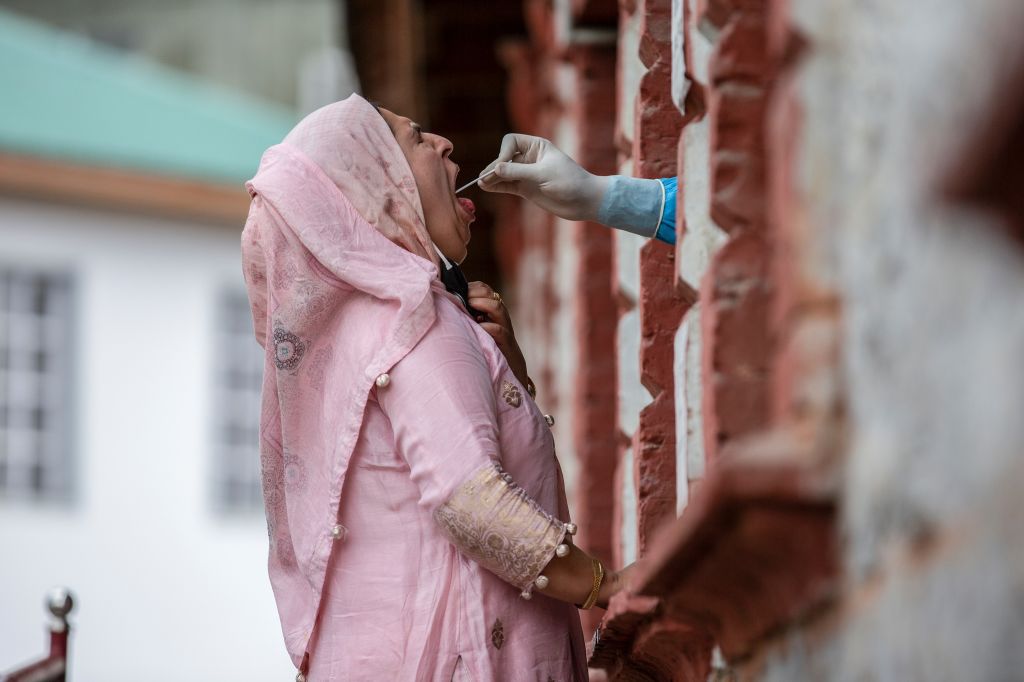Shaheena Jan walks along a rough road from her home to reach the main street that leads to the hospital, where she is working as a part-time sweeper in a government hospital in Shangus, Anantnag in South Kashmir.
With no public transport available due to the lockdown in Kashmir, Jan’s commute to the hospital takes nearly two hours. Sometimes she is lucky and gets rides from other people traveling in the same direction.
“This is a tough situation as I have to manage my home as well as my job. After coming back, I have to do all the household work alone,” she says.
Jan, 38, gets paid 560 Rs ($7.50) per month as a consolidated health worker, a job she has had since 2008. She says her wages are “not even sufficient for a day’s meal.” During the pandemic, she has not only been cleaning but also taking on other duties for the hospital. “If a patient becomes positive in any of the nearby villages, I have to go to their home, get the details and at the end put a poster on their house gate,” Jan says. “It is a risky job given the current situation.”
These consolidated workers who work in the health department are paid an amount ranging from 200 Rs ($2.70) to 800 Rs ($10) maximum per month. Though both men and women are employed in these jobs, it is only the women who take on the extra tasks at work, while also taking care of responsibilities at home.
“Each day I fear that I may have contracted COVID and fear going back home. I have children and I fear to go near them. Many times I am put on night duty and I can’t say no,” Jan says, adding that the hope of being eventually added to the hospital’s permanent staff—and receiving much higher wages—keeps her going.
In another village, Afroza Akhter has been working as a part-time sweeper for the last 15 years, and still is earning only Rs 560 ($7.50) per month and her pay schedule can sometimes be unpredictable.
Akhtar has been transferred to many sub-centers and hospitals over the years and is currently working in a sub-district hospital in the city of Pulwama.
Like Jan, Akhter says she is constantly worried about contracting COVID and getting her husband and four children sick. She thinks often about quitting her job, but she, too, hangs on in the hope that she can join the permanent staff. “I get a meager amount of Rs 560 per month and it is frustrating. The lockdown is adding more to it as I hardly find any transport to report to work. I keep on thinking of leaving the job, but I belong to a poor family, I have kids and have a hope that one day they will make us permanent staffers.”


 Raihana Maqbool
Raihana Maqbool
